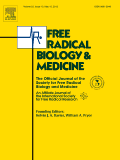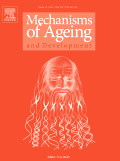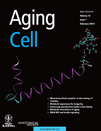
Nature Aging
metrics 2024
Innovating Insights into Aging Mechanisms
Introduction
Nature Aging, published by SPRINGERNATURE in Germany, stands as a premier journal dedicated to advancing the field of aging research. With high-ranking performance indicators, including a Q1 classification in Aging, Geriatrics and Gerontology, and Neuroscience (miscellaneous), this journal emphasizes the interdisciplinary nature of aging studies. Its Scopus rankings highlight its impact, achieving remarkable positions such as #1 in Neuroscience and #2 in both Geriatrics and Biochemistry for aging-related research. Although currently not open access, Nature Aging provides a wealth of cutting-edge research and critical reviews that aid researchers and practitioners in understanding the complexities of aging mechanisms and their implications. As the field continues to evolve from 2021 through 2024, this journal not only facilitates the dissemination of knowledge but also fosters innovative discussions that propel the science of aging forward. Join the vibrant community of scholars and professionals dedicated to solving the challenges associated with aging by engaging with the content published in Nature Aging.
Metrics 2024
 -
- 17.00
17.00 17.00
17.00 -
-Metrics History
Rank 2024
IF (Web Of Science)
JCI (Web Of Science)
Quartile History
Similar Journals

BIOGERONTOLOGY
Advancing Understanding of Biological Aging ProcessesBIOGERONTOLOGY, published by SPRINGER, is a premier journal dedicated to the interdisciplinary study of biological aging processes and their implications for health and longevity. With an ISSN of 1389-5729 and an E-ISSN of 1573-6768, this journal features cutting-edge research that addresses critical questions in the fields of aging, geriatrics, and gerontology. Ranking impressively in the top quartiles, particularly as Q1 in Gerontology, BIOGERONTOLOGY is recognized for its contributions to advancing the understanding of aging at both molecular and systemic levels. The journal’s rich repository of scholarly articles provides valuable insights for researchers, healthcare professionals, and students alike, fostering a deeper comprehension of age-related biological mechanisms. Although not an open-access journal, it is highly regarded with an impact factor that reflects its significant role in the academic community. The journal spans from 2000 to 2024, ensuring a broad historical context for its studies, and is based in the Netherlands, with its administrative office located at One New York Plaza, Suite 4600, New York, NY 10004, United States. Engaging with BIOGERONTOLOGY means joining a global dialogue on the science of aging and the implications it holds for humanity.

European Journal of Geriatrics and Gerontology
Empowering knowledge to enhance the lives of older adults.Welcome to the European Journal of Geriatrics and Gerontology, a peer-reviewed platform dedicated to advancing knowledge and research in the fields of geriatrics and gerontology. Published by GALENOS PUBL HOUSE, this journal serves as a critical resource for researchers, healthcare professionals, and students who are involved in the care, treatment, and study of elderly populations. Since its inception in 2019 and running through 2024, the journal aims to foster interdisciplinary collaboration and disseminate innovative research that addresses the unique challenges faced by older adults. With an ISSN of 2687-2625, the journal is classified in the Q4 quartile of the Geriatrics and Gerontology category, signifying its emerging influence within the academic community, despite its current Scopus ranking of #113 out of 116, reflecting a rich opportunity for growth and visibility. Although the journal is not open access, it maintains a commitment to scholarly rigor and quality. Engage with the European Journal of Geriatrics and Gerontology to contribute to and learn from the evolving discourse in aging research.

JOURNALS OF GERONTOLOGY SERIES A-BIOLOGICAL SCIENCES AND MEDICAL SCIENCES
Exploring Innovations in Aging and Health CareJournals of Gerontology Series A: Biological Sciences and Medical Sciences, published by Oxford University Press Inc, stands at the forefront of aging research, bridging the gap between biological sciences and medical practices to address the complexities of gerontology. With an impressive impact factor reflecting its significant contribution to the field, this journal is recognized within the Q2 quartile in Aging and the Q1 quartile in Geriatrics and Gerontology for 2023, evidencing its high-quality scholarship and relevance. Researchers and professionals will find valuable insights through its comprehensive coverage of aging-related topics, informed by cutting-edge studies ranked among the top in their category—Rank #11 in Geriatrics and Gerontology and Rank #9 in Aging on Scopus. The journal aims to disseminate innovative research that can impact health care practices and enhance the quality of life in older populations. For those engaged in studies of aging, this journal offers a vital platform for sharing knowledge and advancing the understanding of biological and medical sciences as they pertain to gerontology.

FREE RADICAL BIOLOGY AND MEDICINE
Leading the Charge in Free Radical Research since 1987FREE RADICAL BIOLOGY AND MEDICINE, published by Elsevier Science Inc, is a premier journal dedicated to the field of biochemistry and medical physiology. With an ISSN of 0891-5849 and an E-ISSN of 1873-4596, this journal stands out with its impressive ranking in the 2023 category quartiles: Q1 in Biochemistry and Q1 in Physiology (medical). Specifically, it has achieved a remarkable position of 29th out of 438 in Biochemistry and 8th out of 113 in Physiology, placing it firmly in the 93rd percentile of its field, as per Scopus rankings. Since its inception in 1987, the journal has focused on advancing the understanding of free radicals and their role in biological processes, encompassing a wide range of topics from oxidative stress to therapeutic applications. Although it does not currently offer open access, the journal's rigorous peer-review process and impactful research ensure that it remains a valuable resource for researchers and professionals seeking to explore the intricate relationships between free radicals and health. The journal's headquarters are located at STE 800, 230 Park Ave, New York, NY 10169, reflecting its esteemed place within the scientific community and commitment to high-quality research.

npj Aging and Mechanisms of Disease
Empowering Research for a Healthier Futurenpj Aging and Mechanisms of Disease is a leading open-access journal dedicated to advancing the understanding of the biological mechanisms underlying aging and age-related diseases. Published by NATURE PORTFOLIO in the United Kingdom, this journal has established itself as a vital resource within the fields of Aging and Geriatrics and Gerontology, proudly holding a prestigious Q1 ranking in both categories as of 2023. With an impressive Scopus ranking, placing it in the top 10 for Geriatrics and Gerontology, and the top 9 for Aging, the journal is committed to disseminating high-quality, peer-reviewed research that offers innovative insights and fosters collaboration among researchers and practitioners. Since its inception in 2015, npj Aging and Mechanisms of Disease has embraced the open-access model, ensuring that groundbreaking findings are freely available to all, thereby promoting widespread knowledge-sharing within the scientific community. This journal serves as an essential platform for those seeking to explore the complex interplay of genetic, molecular, and environmental factors that influence aging and its associated challenges.

Lancet Healthy Longevity
Empowering Health Across the LifespanThe Lancet Healthy Longevity is a premier journal published by Elsevier that focuses on advancing our understanding of healthy aging and longevity through interdisciplinary research. Established in 2020, this Open Access journal is committed to disseminating innovative findings that enhance public and individual health, making it accessible to a global audience. The journal is proud to be recognized with a Q1 ranking in critical categories such as Family Practice, Geriatrics and Gerontology, Health (Social Science), and Psychiatry and Mental Health, indicating its prominent role in shaping contemporary discourse in these domains. As one of the leading titles within the field, it holds an influential position in Scopus rankings, with top placements in Geriatrics and Gerontology as well as Family Practice, thereby reaching the 99th percentile of scholarly impact. The Lancet Healthy Longevity aims to foster collaboration among researchers, healthcare professionals, and policymakers to promote healthy longevity, ultimately supporting the growing aging population worldwide. With its commitment to high-quality research and global accessibility, this journal is a vital resource for those dedicated to improving health outcomes across the lifespan.

MECHANISMS OF AGEING AND DEVELOPMENT
Illuminating Mechanisms That Shape Our LivesMECHANISMS OF AGEING AND DEVELOPMENT is a premier academic journal published by Elsevier Ireland Ltd, specializing in the fields of aging and developmental biology. With an impressive Q1 ranking in both categories as of 2023, this journal serves as a vital platform for researchers, professionals, and students seeking to advance their understanding of the complex biological processes that underlie aging and development. Since its inception in 1972, the journal has steadily contributed to the accumulation of valuable knowledge, maintaining a history of rigorous peer-reviewed articles that explore genetic, molecular, and cellular mechanisms impacting aging and development. Its high Scopus rankings—notably 5th in Aging and 8th in Developmental Biology—underscore its significance in the scientific community. While the journal follows a traditional publishing route without Open Access options, it remains an indispensable resource for those dedicated to the investigation of life’s aging processes and developmental phenomena. With publication projected through to 2024, the MECHANISMS OF AGEING AND DEVELOPMENT continues to shape the discourse within these critical research domains.

Frontiers in Aging
Fostering Multidisciplinary Dialogues on AgingFrontiers in Aging is a leading academic journal published by FRONTIERS MEDIA SA, dedicated to advancing the understanding of the biological processes associated with aging. Established in 2020, this open-access journal aims to bridge the gap between various disciplines including genetics, molecular biology, and physiology, providing a multidisciplinary platform for researchers and clinicians alike. With a notable impact factor denoted by its Q2 quartile rankings in Aging, Genetics, and Molecular Biology, and a Q1 ranking in Physiology as of 2023, the journal is recognized for its contribution to the scientific community. Located in Lausanne, Switzerland, it is committed to promoting open discourse and publishing cutting-edge studies that address the complexities of aging and its implications for health and longevity. The journal’s editorial board, consisting of leading experts, ensures the rigorous peer-review process, maintaining high academic standards and fostering innovation in aging research.

Aging Medicine
Pioneering Research in Gerontology and GeriatricsAging Medicine, published by Wiley, is a pivotal open-access journal that has been at the forefront of research dedicated to the aging population since its inception in 2018. With a focus on both geriatric care and gerontology, the journal serves as a crucial resource for researchers, healthcare professionals, and students interested in understanding the complexities of aging and the related medical challenges. Although it holds a Q3 quartile ranking in the fields of Aging and Geriatrics and Gerontology according to the 2023 metrics, the journal continues to effectively disseminate valuable research and insights, helping to bridge gaps in knowledge and practice. With an E-ISSN of 2475-0360, it offers an open-access model that ensures broader accessibility to its published content, thus promoting collaboration and innovation across disciplines. As the journal converges towards 2024, it remains committed to evolving with the dynamics of aging research, making it a significant platform for the exchange of ideas and advancements in this essential field.

AGING CELL
Pioneering Insights into Aging and Cell BiologyAGING CELL is a premier peer-reviewed journal published by Wiley, specializing in the rapidly evolving field of aging research and cell biology. Established in 2002 and enjoying an impressive track record as evidenced by its Q1 ranking in both Aging and Cell Biology categories for 2023, the journal has become a vital resource for researchers and professionals alike. With a significant impact factor highlighting its scholarly influence, AGING CELL offers an open access model since 2014, ensuring that groundbreaking research is accessible to the global community. The journal covers a wide array of topics related to the mechanisms of aging at the cellular and molecular levels, making it essential reading for anyone invested in understanding the complexities of aging processes and their implications for health and disease. With a broad international readership based in the United Kingdom and beyond, AGING CELL is dedicated to disseminating high-quality research that impacts scientific understanding and fosters advances in the field.